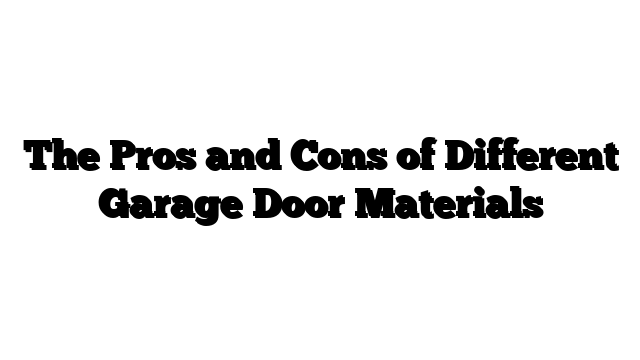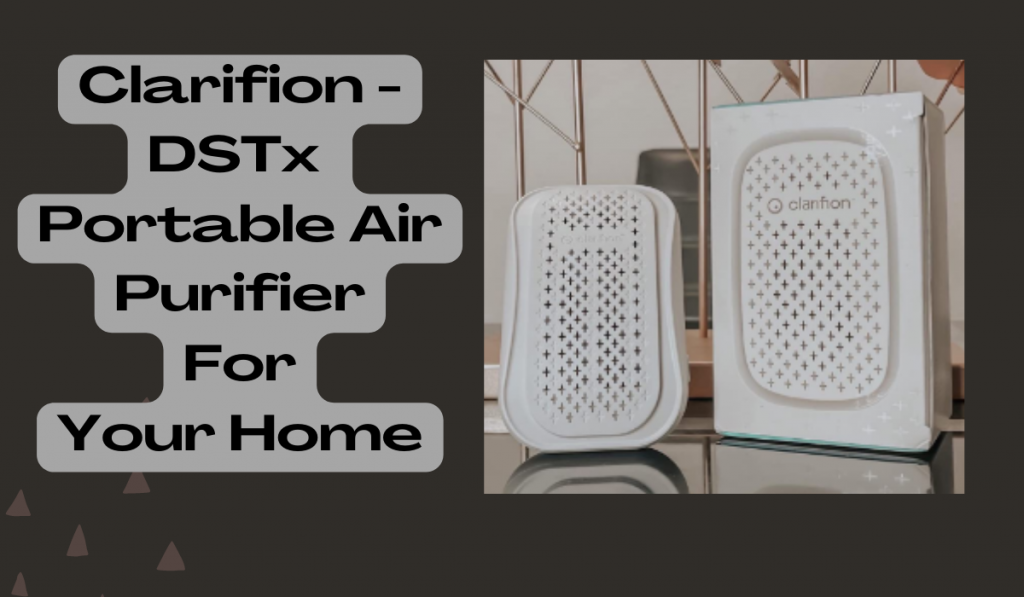Garage doors not only serve a functional purpose but also enhance a home’s curb appeal. Given their importance, choosing the right material becomes a crucial decision. To assist you in making an informed choice, we’ve broken down the pros and cons of some popular garage door materials. If you’re interested in learning about the experiences of others with different garage door materials, you can check out the 4.8 rating on Yelp. This rating provides valuable insights into the satisfaction of users and can guide you in selecting the garage door material that best meets your needs.
Explore the advantages and drawbacks of various garage door materials and find out which one suits your needs best. For more detailed insights into these options, view it now. This resource provides valuable information on selecting the right garage door material based on durability, maintenance requirements, and aesthetic appeal. Whether you’re renovating or building new, understanding these factors can help you make an informed decision that enhances the functionality and style of your home’s exterior.
Home interior design is a transformative aspect of creating a living space that reflects personal style and functionality. From selecting color schemes and furniture arrangements to incorporating decorative elements, thoughtful interior design can enhance comfort and aesthetics. On the other hand, efficient garage doors repair ensures the functionality and security of this crucial entry point, contributing to the overall safety and curb appeal of a home. If you’re seeking professional guidance and services for home interior design, consider exploring the offerings at www.tksdesigngroup.com/ for a personalized and aesthetically pleasing approach to transforming your living spaces.
Steel: The Sturdy Sentinel
Advantages:
Durability: Steel garage doors are known for their strength and longevity. They can withstand harsh weather conditions and are resistant to dents and damages.
Low Maintenance: These doors require minimal upkeep, saving you time and effort in the long run.
Versatility: Available in various styles, designs, and finishes, steel doors can be customized to match your home’s aesthetic.
Drawbacks:
Susceptibility to Rust: In damp or coastal environments, steel doors can rust over time.
Insulation Concerns: Steel conducts temperature, making it less insulating unless paired with proper insulation.
Wood: The Classic Charm
Advantages:
Aesthetics: Wooden garage doors offer a timeless appeal and can elevate the look of any home.
Customization: Wood is versatile, allowing homeowners to choose from various grains, stains, and designs.
Natural Insulator: Wood has innate insulating properties, providing decent temperature control.
Drawbacks:
Maintenance: Wooden doors require regular maintenance, including repainting or refinishing, to prevent rot and wear.
Cost: High-quality wooden garage doors can be on the pricier side.
Weight: Wood is heavy, which may require a more powerful door opener and can cause wear on mechanisms over time.
Aluminum: The Lightweight Leader
Advantages:
Weight: Aluminum doors are lightweight, putting less strain on garage door openers and mechanisms.
Corrosion Resistant: Suitable for humid or coastal areas, aluminum doesn’t easily rust.
Modern Appeal: They can offer a sleek, contemporary look, especially when combined with glass panels.
Drawbacks:
Durability: Aluminum is more prone to dents and damage compared to steel.
Energy Efficiency: Without adequate insulation, aluminum doors might not provide the best temperature control.
Fiberglass: The Innovative Option
Advantages:
Resistance: Fiberglass doors resist denting and can stand up against saltwater, making them ideal for coastal homes.
Translucency: They can allow natural light in, especially if designed with transparency in mind.
Lightweight: Like aluminum, fiberglass is relatively light.
Drawbacks:
Fragility: Over time, and under severe conditions, fiberglass might crack.
Weather Effects: Prolonged exposure to extreme temperatures can cause the color to fade or the material to warp.
Vinyl: The Low Hassle Choice
Advantages:
Low Maintenance: Vinyl garage doors require minimal upkeep and are resistant to rot.
Cost-effective: Generally more affordable than wood while still offering a decent aesthetic.
Dent Resistant: Vinyl holds up well against dings and accidental bumps.
Drawbacks:
Limited Designs: Vinyl doors come in fewer styles compared to other materials.
Temperature Sensitivity: Extreme cold can make vinyl brittle, while intense heat might warp it.
When selecting a garage door material, it’s vital to consider both its aesthetic appeal and functional properties in relation to your specific needs and environment. Each material offers a unique set of advantages and potential drawbacks, influenced by factors such as climate, frequency of use, maintenance preferences, and budget constraints.
For homes in coastal areas, corrosion-resistant materials like aluminum or fiberglass might be ideal. If you’re aiming for a traditional and luxurious appeal, wood is a top choice, though it demands regular maintenance. On the other hand, steel and vinyl doors offer durability and cost-effectiveness suitable for many average homeowners.
Remember, no single material is universally superior. Instead, the best choice depends on a blend of your personal preferences, local conditions, and desired level of maintenance. It’s always a good idea to consult with garage door professionals to get insights tailored to your situation. By doing so, you can ensure your chosen door not only enhances your home’s curb appeal but also serves its functional purpose effectively for years to come.
James Martin is a passionate writer and the founder of OnTimeMagazines & EastLifePro. He loves to write principally about technology trends. He loves to share his opinion on what’s happening in tech around the world.


